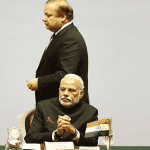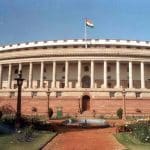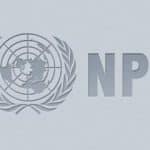Asylum Policy of India
Contents
Who is an asylum seeker, is he the same as a refugee?Is there a uniform law in India for asylum seekers and refugees?Why has India not signed the 1951 Convention or its Protocol?What would ratifying the Convention mean for India?What is the issue of Baloch leader Bugti?What has been the legal position in the case of Tibetan refugees and Tamil refugees from Sri Lanka?What relaxations are granted to refugees from Afghanistan, Bangladesh and Pakistan?
Who is an asylum seeker, is he the same as a refugee?
- According to the United Nations High Commissioner for Refugees (UNHCR), asylum seekers are individuals who seek international protection as a refugee but whose claims for refugee status have not yet been determined, irrespective of when they may have been lodged.
- A person can apply for asylum on the ground that if he is returned to his country of origin he has a well founded fear of persecution on account of race, religion, nationality, political belief or membership of a particular social group.
- Refugee is an asylum seeker whose application for a refugee status has been successful. In the broader sense, it means a person fleeing a civil war or a natural disaster but not necessarily fearing persecution as defined by the 1951 refugee convention.
- Every refugee has at some point been an asylum seeker.
- Refugees are individuals recognized under the:
- 1951 Convention Relating to the Status of Refugees
- its 1967 Protocol
- the 1969 Organization of African Unity (OAU) Convention Governing the Specific Aspects of Refugee Problems in Africa
- those recognized in accordance with the UNHCR Statute
- individuals granted complementary forms of protection, or those enjoying temporary protection
- Since 2007, the refugee population has also included people in a “refugee-like situation”.
- By the end of 2015, as per the UN refugee agency, there were 2,07,867 persons of concern in India, of whom 2,01,281 were refugees and 6,480 were asylum seekers.
- India has for many years offered shelter to Tibetans, the Chakmas of Bangladesh, Afghans and ethnic Tamil refugees from Sri Lanka.
Is there a uniform law in India for asylum seekers and refugees?
- Though India has one of the largest refugee populations in South Asian region, it is yet to enact a uniform law that addresses the issue of asylum seekers.
- Neither is the term ‘refugee’ mentioned in any domestic law.
- India has not signed the 1951 UN Refugee Convention on the status of Refugees, or its Protocol that mentions the rights and services host states must provide to the refugees.
- Various laws like:
- The Passport (Entry of India) Act,1920
- The Passport Act, 1967
- The Registration of Foreigners Act, 1939
- The Foreigners Act, 1946
- The Foreigners Order, 1948
are consulted by Indian authorities with regard to the entry of refugees and asylum seekers.
- These laws treat refugees on par with other foreigners, not taking into account that the former need a special status based on humanitarian grounds
- India, however, has an informal refugee regime broadly in line with international instruments. While there is no formal asylum policy, the government decides on granting asylum on an ad-hoc and case-to-case basis.
- In December 2015, Congress MP Shashi Tharoor introduced a Private Member’s Bill called the Asylum Bill, 2015 to provide for the establishment of a legal framework to consolidate and harmonise India’s refugee policies.
- The Bill has not yet been taken up for consideration.
- The situation in the case of Bugti has become so complex that the officials in the Home Ministry are digging through 1959 records to check the process.
- The process of deciding who qualifies as a refugee is also unclear. While the Indian Government determines refugee status for asylum-seekers from neighboring regions like Tibet and Sri Lanka, asylum seekers from other regions approach the UNHCR office in New Delhi. This has given rise to an inconsistent approach towards different nationalities, and an asylum policy that, on the whole, lacks uniformity.
Why has India not signed the 1951 Convention or its Protocol?
- The reason is chiefly security related. Borders in South Asia are extremely porous and any conflict can result in a mass movement of people. This can have two results:
- A strain on local infrastructure and resources in countries that are poorly equipped to deal with sudden increase in population.
- It can upset the demographic balance.
- Another argument is that India already does its duty, so there is no need to sign the convention. It mostly does not even take UN money to look after the refugees.
- India retains a degree of scepticism about the UNHCR.
What would ratifying the Convention mean for India?
- It will be bound by law not to repatriate a single refugee against their will. It is known as the non-refoulement principle which means no forcible repatriation. But India in any case is bound by this principle because it is contained in the 1984 Convention against torture, to which India is a signatory.
What is the issue of Baloch leader Bugti?
- Brahumdagh Bugti is the President and Founder of Baloch Republican Party
- He is the grandson of the Baloch nationalist leader Akbar Bugti, who was killed by the Pakistani Army in 2006.
- He fled to Afghanistan from Pakistan in 2006 and moved to Switzerland in 2010.
- He has been in Geneva ever since, with his application for political asylum pending with the Swiss authorities.
- He now wants to apply for political asylum in India. This, he hopes, will enable him to get documents to travel and lobby for the Baloch issue at international fora.
- Once he applies for asylum, the Ministry of External Affairs will refer the matter to the Ministry of Home Affairs, which will then process his request.
- In case the decision of the Government comes in his favor, Bugti could be granted a long-term visa that would have to be renewed every year.
- Exiled Bangladesh writer Tasleema Nasreen, who left Bangladesh in 1994 amid threats from fundamentalists for alleged blasphemy, has been given an Indian visa continuously since then.
What has been the legal position in the case of Tibetan refugees and Tamil refugees from Sri Lanka?
- The initial group of Tibetans who arrived in 1959 with the Dalai Lama were regarded as refugees and were given asylum.
- They were given land, housing and a Registration Certificate (RC) that allowed them to enjoy all privileges of an Indian citizen except the right to vote and apply for government jobs.
- The RC is a prerequisite for the Identity Certificate (IC), which is necessary for international travel.
- Sri Lankan Tamil refugees are broadly classified as “camp refugees” and “non-camp refugees” based on socio-economic parameters.
- They cannot vote or own land in India, but are allowed to own cattle and purchase items for domestic use.
- They are issued individual and family identity cards.
- They are also issued refugee certificates by the revenue inspector of their camp, which is required for their return to Sri Lanka.
What relaxations are granted to refugees from Afghanistan, Bangladesh and Pakistan?
- In July 2016, the government approved a number of facilities to ease difficulties faced by minority communities- Hindus, Sikhs, Buddhists, Jains, Parsis and Christians of Afghanistan, Bangladesh and Pakistan staying in India on Long Term Visas.
- They were allowed to open bank accounts, purchase property for self-occupation and suitable accommodation for carrying out self-employment, take self-employment, and obtain driving licences, PAN cards and Aadhar numbers.
- Other facilities: Free movement of such persons within the state or Union Territory in which they are staying, transfer of visa papers from one state to another, and the waiver of penalty on non-extension of both short term and long term visas on time.
- Earlier, in September 2015, the entry and stay of Hindus, Sikhs, Christians, Jains, Parsis and Buddhists from Pakistan and Bangladesh who came to India fearing religious persecution, either without valid documents or with documents whose validity had since expired, had been regularized by the government.
- The government has decided to exempt Bangladeshis and Pakistanis belonging to minority communities who entered India on or before December 31, 2014, from the relevant provisions of rules and order made under the Passport (Entry into India) Act, 1920 and the Foreigners Act, 1946, in respect of their entry and stay in India without such documents, or after the expiry of such documents.











